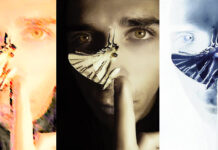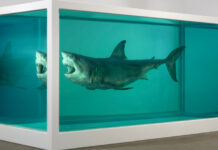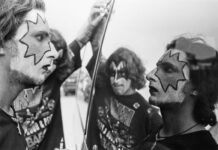Some people say that man invented God as soon as they grasped their mortality.
Some of our early anscestors perceived that death is the common fate of all living creatures, therefore men’s too, which, in turn, meant theirs too. But their brain could not accept (or comprehend) the end. So they buried the dead with their toys to have something to keep themselves busy at the eternal places.
Others speculate that the first man who perceived he would die was a poet. He told the others about it and they laughed – or kept eating bananas. Homo Poet could not come to terms with it.
“What is the point of all those we live,
if we’re destined to die and nothing remains?”
The poet was too vain. He craved to earn immortality. Writing did not exist back then to depict his thoughts neither photography to immortalize his pictures nor a recording studio or even YouTube to upload his music.
He was pacing the cave all riled up. Then he saw some children playing. There were taking handfuls of colourful soil and did graffiti on the cave walls and thus Homo Poet discovered art’s immortality. He set out painting buffalos and antelopes. His peers made fun of him; they thought he had gone batty, that he had regressed to childish behavior.
He spent quite many years decorating the cave. Once he was done, and just before he dies of flu, he whispered: “I beat you death”.
~~{}~~
Millenniums have come and gone since the first artist and we keep disliking death. We keep going on believing that there might be something else after this life. We keep making art as an antidote to the ephemeral, to the lightness of being. Some try to defeat the final obstacle with science, others strive to downplay it with philosophy. The majority simply prefers to repel the thought, they’d rather not give much thought to it.
Despite the diligent efforts, death is still the only certainty in life.
How would people behave if they knew beyond any doubt that there is something else after death? Would they keep living a routine life, paying taxes and watching TV, or would they dare to live what they dreamt of?
It is a paradox, isn’t it? The cognizance of death, the certainty of the end and the brevity of our life should drive us live a fuller life; to live exactly as we want because we will not live for long.
On the contrary, we live as if this gift, the combined random events that resulted in our existence, is something that will occur again.
You don’t have to go far in the past, all you have to think is that in your father’s semen there were million sperms and if another one fused with your mother’s egg cell (this very egg cell of this very month), then it wouldn’t be you that reads these lines but someone else.
Figure out the chances now of all the possibilities for your parents to be born, then for their parents and all the previous ones. Let us not take into account the chance to meet each other.
Forget about fate, destiny and necessity. We are here by happenstance; and, most important, we will not be here for too long.
What are we doing about it, to fill the pockets of this small and only chance?
~~{}~~
The best thing in art, what makes people want to draw, take photos, sing, write, is that in this way you can capture the moment for eternity.
Some say God invented man as soon as he perceived he would die.
Along with mortality he gave to the man his divine breath, too. Man’s divinity is precisely this: imagination. You can live as immortal in the imagination of your art.
Not through posthumous fate and the immortality of your art; this is vanity.
Immortality supervenes once you break reality’s strict boundaries and give birth to a new world, a new man, a new story.
We are but animals that got around to telling a story before they die. To create a nonexistent world. It is of no use after all since we all shall die, since our world will vanish, since, ultimately, the whole universe will be erased in its entropia.
We don’t make art because of its usefulness; just like we don’t fall in love because we want to get married neither have we sex because we want to reproduce ourselves.
We make art, we have sex, because we feel elated by doing so.
~~{}~~
We are animals and this is no bad thing. We shall die and this might be not so bad.
Between the fortuitous luck to be born and the equally unpremeditated – although unavoidable – death, a few moments intervene. How are we going to use them?
There is not a standard answer, everyone has answers of their own. Maybe there is something deeper: There are no answers at all, only questions.
Ever since we were born or maybe better since we realize that we are something different from our parents, since we become spiritually independent, we pose some questions.
And we’re trying to find the answers to these questions throughout our whole life.
What is the meaning of life? What is death? How should I live? What is real and what is beautiful? To be or not to be?
There is no answer, don’t waste your time in delusions. We pick our questions and carry them until the end. There are not even right and wrong answers.
There is only the randomness and the brevity of our life.
Even if everything we think and do is wrong, it doesn’t matter, since we had, and still have, the privilege to live, even if we did mistakes, our mistakes, to our own questions.
~~{}~~
PS: A journalist asked Bob Marley how old he was; and he answered: “I am today”.
~~~~~~~~~~~~~~~~~~~~~~~~~~~~









